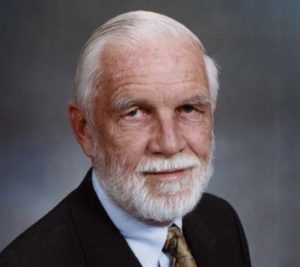 Our own Prof. Lee Langston helped Apollo 11 make history by being part pf the team designing the fuel cells that powered Apollo 11 to the moon and the return trip to Earth.
Our own Prof. Lee Langston helped Apollo 11 make history by being part pf the team designing the fuel cells that powered Apollo 11 to the moon and the return trip to Earth.
Read more in the Hartford Courant’s article.
 Our own Prof. Lee Langston helped Apollo 11 make history by being part pf the team designing the fuel cells that powered Apollo 11 to the moon and the return trip to Earth.
Our own Prof. Lee Langston helped Apollo 11 make history by being part pf the team designing the fuel cells that powered Apollo 11 to the moon and the return trip to Earth.
Read more in the Hartford Courant’s article.
 Our own Prof. Lee Langston helped Apollo 11 make history by being part pf the team designing the fuel cells that powered Apollo 11 to the moon and the return trip to Earth.
Our own Prof. Lee Langston helped Apollo 11 make history by being part pf the team designing the fuel cells that powered Apollo 11 to the moon and the return trip to Earth.
Read more in the Hartford Courant’s article.
The power you feel underneath you when you’re on a plane as it takes off is tremendous. The physics that enable the remarkable feat of lifting a 175,000-pound midsize commercial aircraft into the sky and keeping it there are just as incredible – and complicated.
There are four components to a commercial aircraft gas turbine engine: the fan that produces most of the thrust, the compressor, which compresses the incoming air, the combustor which burns the fuel to create high-energy gas, and the turbine that produces work from that gas to power the fan and exhaust to produce additional thrust.
The challenge in this system is keeping the flame in the combustor burning. Flame blowoff can occur when the air flow speed is very high, or the fuel-air mixture is weak so that the flame cannot be stabilized, so it moves downstream and eventually extinguishes itself.
University of Connecticut professor of mechanical engineering, Baki Cetegen has received $320,000 from the National Science Foundation to study this problem by investigating how different fuels and high levels of flow turbulence affect the occurrence of flame blowoff.
By: Eli Freund, Editorial Communications Manager, UConn School of Engineering
The UConn School of Engineering is proud to announce that Mechanical Engineering Professor Chih-Jen Sung has been recognized as one of the 2019 Class of Fellows for The Combustion Institute.
Sung joins a class of 38 accomplished international scholars from industry, academia, and the public sector, and was recognized for “novel contributions to flame dynamics and structure, and development of rapid compression machines to enhance understanding of low-temperature chemistry.”
Read the School of Engineering announcement.
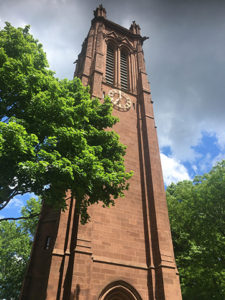 After a four-year vacation, the Historic Keney Clock is telling time again thanks to senior design project completed by Mechanical Engineering students seniors Henry Courchaine ’19, Garrett Murphy ’19, and Spencer Padget ’19 advised by Thomas Mealy. The project was a collaboration between UConn, the City of Hartford and Friends of Keney Park.
After a four-year vacation, the Historic Keney Clock is telling time again thanks to senior design project completed by Mechanical Engineering students seniors Henry Courchaine ’19, Garrett Murphy ’19, and Spencer Padget ’19 advised by Thomas Mealy. The project was a collaboration between UConn, the City of Hartford and Friends of Keney Park.
Through our Senior Design Program, directed by Prof. Vito Moreno, industrial sponsors put the bright UConn ME undergraduate students to work on a real-world problem that they are interested in researching, while reaping the benefits of our faculty’s experience and expertise. The renovation of the Historic Keney Clock Tower is one of the more than 65 senior design projects that Mechanical Engineering students worked on during the 2018-2019 academic year.
For additional information, please see the article in UConn Today or the press coverage, including:
Through our Senior Design Program, industrial sponsors put the bright UConn ME undergraduate students to work on a real-world problem that they are interested in researching, while reaping the benefits of our faculty’s experience and expertise. For students, this program is an opportunity to synthesize and apply the classroom engineering knowledge they have acquired. They delve further into various aspects of product development process, and are experiencing first hand how ethics affect engineering decisions, how professionals communicate ideas and the day-to-day implications of design decisions and of intellectual property.
Here is a podcast, part of Simsbury Bank’s “Manufacturing Matters” initiative, in which CEO Martin Geitz discusses a UConn Engineering Senior Design partnership with EDAC Technologies that has provided a mechanism to hire some of our talented engineering graduates while providing solutions to one of the company’s major challenges.
From left to right in the video: Kenneth Osborn (Engineering Manager, EDAC), Emily Sweeney (UConn senior), Martin Geitz (CEO, Simsbury Bank) and Prof. Vito Moreno (UConn).
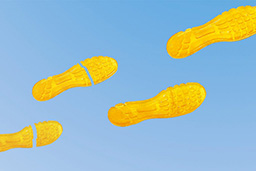
A new paper published by Prof. Ying Li and his collaborators from University of Southern California in NPG Asia Materials provide the details of a new class of self-healing rubber that is inspired by the healing of natural tissues.
For more details, please see the news article from UConn Today.
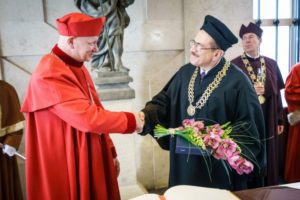 Professor Nejat Olgac received an honorary doctorate from the Czech Technical University in Prague during a ceremony that took place on January 29, 2019.
Professor Nejat Olgac received an honorary doctorate from the Czech Technical University in Prague during a ceremony that took place on January 29, 2019.
Read more on the School of Engineering’s website.
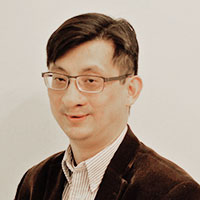 Prof. Jiong Tang will serve as the general conference chair for the American Society of Mechanical Engineers’ international annual design conference in Anaheim CA. The 2019 ASME International Design Engineering Technical Conference (IDETC) and Computers and Information in Engineering Conference (CIE) will take place between August August 18 – 21, 2019 at the Anaheim Convention Center.
Prof. Jiong Tang will serve as the general conference chair for the American Society of Mechanical Engineers’ international annual design conference in Anaheim CA. The 2019 ASME International Design Engineering Technical Conference (IDETC) and Computers and Information in Engineering Conference (CIE) will take place between August August 18 – 21, 2019 at the Anaheim Convention Center.